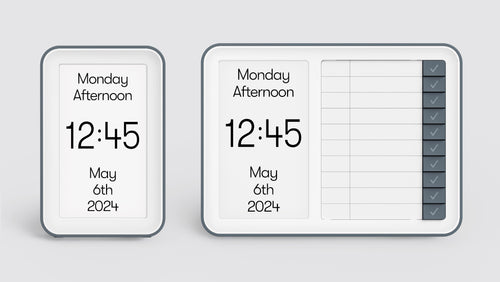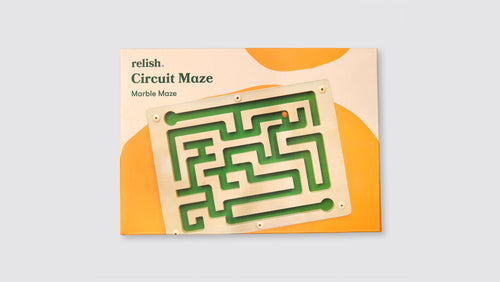Caring for someone living with dementia can be an emotionally challenging experience, especially when dealing with the behavioural changes that come with dementia progression.
For people living with dementia, sudden changes in behaviour are common. So, if you’re a caregiver, it’s important to understand the differences in behaviour dementia can cause.
Managing these changes requires patience, compassion and an understanding of how dementia progresses.
In this article, we will discuss tangible tips for coping with dementia behaviour changes that can be used by a family member or a professional carer to reassure the person living with dementia.
By implementing these strategies, caregivers can help their loved ones:
- Maintain a sense of security
- Stay as independent as possible
- Maintain structure in their lives
- Reduce anxiety and agitation
- Improve their overall quality of life
So, whether you are a caregiver, family member, or friend of someone with dementia, keep reading to learn more about managing behavioural changes for people with dementia.
How Does Dementia Change a Person's Behaviour?
Dramatic or subtle changes in behaviour are often the first signs of dementia and Alzheimer’s disease. The changes can occur gradually for some, while they can be more abrupt for others.
Dementia can affect people in various ways, often leading to a wide range of behavioural changes. While the changes will most certainly be unique to every person, the most common behaviours to expect are:
- Hoarding
- Wandering aimlessly
- Repetitive tasks
- Accusing others
- Social withdrawal
- Following others around
- Agitation
- Easily losing things
- Sundowning
- Substandard sleep habits
- Losing track of time
- Forgetting to eat
- Aggressive behaviour
- High anxiety or stress
- Agitation
- Losing inhibitions
Hoarding is a prevalent behaviour for people living with dementia and is common with most types of dementia. Individuals may collect and keep items with no practical use or value, causing clutter and disorganisation in the home.
Wandering is another typical behaviour where a person may become disoriented and wander away from their home or familiar surroundings. Repetitive tasks can also occur, such as constantly checking locks or rearranging items.
Sundowning is a behaviour where a person becomes increasingly agitated or confused come the late afternoon or evening. Problematic sleep patterns, such as insomnia or excessive sleeping, can also be a symptom of dementia. Losing track of time, forgetting to eat or drink, and difficulty managing emotions can also occur.
These behavioural changes happen due to changes in the brain caused by dementia. As dementia progresses, it can affect a person's ability to communicate and manage their emotions, leading to behavioural changes.
Coping with Dementia Behaviour Changes
Coping with dementia behaviour changes may take some getting used to, but it's important to remember that some strategies and techniques can make a world of difference.
Here are our tips on how to manage dementia behaviour changes:
1. Establish a Daily Routine that is Easy to Follow
Establishing a strict routine can support individuals living with dementia to feel more confident and aware while decreasing anxiety.
Creating a daily schedule should include valuable and productive activities such as:
- Eating nutritious and hearty meals
- Joyful movement, such as dancing or walking
- Socialising with others - learn tips on maintaining relationships with dementia here
Sticking to a routine every day can also aid in reducing any agitation and confusion, as it provides structure and predictability, with the same activity occurring at the same time every day.
2. Communicate Effectively and Clearly
Effective communication is key to managing behavioural changes for people living with dementia.
As a carer or loved one, focus on staying calm, using clear and simple language (no fancy vocabulary needed!), maintaining soft eye contact, and using visual aids such as pictures or gestures to support your message or point.
While communicating, it's vital to remain relaxed while focusing on active listening.
Active listening includes not interrupting, listening without judgement or jumping to conclusions, not imposing your opinion, and staying focused. It’s essential to ensure you aren’t distracting the person and letting them speak as openly and freely as possible.
Being as patient as possible is crucial, as it may take longer for a person with dementia to process information and respond. Positive communication is really important for a person with dementia, as it creates trust and provides reassurance.
If you find yourself getting overwhelmed or frustrated, take a break or do some deep breathing.
Why not listen to our podcast for more tips on communication with a loved one with dementia? Or read our blog on techniques for effective communication.
3. Employ Reminiscence Therapy Techniques
Reminiscence therapy is a wonderful technique that can effectively manage behavioural changes in people with dementia.
Reminiscence therapy involves using memory prompts, like photographs from the past or nostalgic, happy music, to prompt individuals to recall past experiences and memories. This therapy can be done in several ways and can help to slow the impact of memory loss!
Top tip: Why not try creating a memory book with photographs or playing music that is meaningful to your loved one?
This technique will tap into the person's long-term memory, which can reduce stress and increase joy and promote feelings of familiarity. It's an excellent tool for improving the quality of life of a person.
We have developed a range of reminiscence products to help unlock positive memories for people living with dementia. Explore the range here.
4. Identify and Track Any Behavioural Triggers
Try and keep notes of what potentially triggers particular behaviour. For instance, was there a loud noise, a crowded or busy space, or a change in routine? In knowing what makes things worse, you can remove this from the routine to avoid triggers in the future.
5. Consider Trying the Day Hub
The Day Hub is an innovative tool developed by Relish that can support individuals living with dementia to manage their daily activities and stay oriented throughout the day.
The Day Hub is a dementia clock and routine organiser that displays the time, date, and whether it is morning, afternoon, evening, or night. It can easily be programmed with reminders to do certain activities, including eating a meal, taking medication, or feeding a pet!
It can gently lessen anxiety and agitation while providing a sense of structure and predictability. You can order your very own on our website:
Another nice thing about using the Day Hub is the sense of peace it gives caregivers or family. When they know their loved one has the Day Hub, they can rest easy, knowing they’re staying on track with their daily routine and safe and secure in their own homes.
Finding Practical Ways to Support Behaviour Changes
While caring for someone with dementia and the related side effects and health problems can be a difficult and emotional journey, there are practical ways to support these behavioural changes.
Focusing on these strategies, including the inventive Day Hub, paired with support from healthcare professionals and support groups, caregivers, and loved ones, can offer guidance and comfort to the person living with dementia's independence, dignity, and quality of life.


















